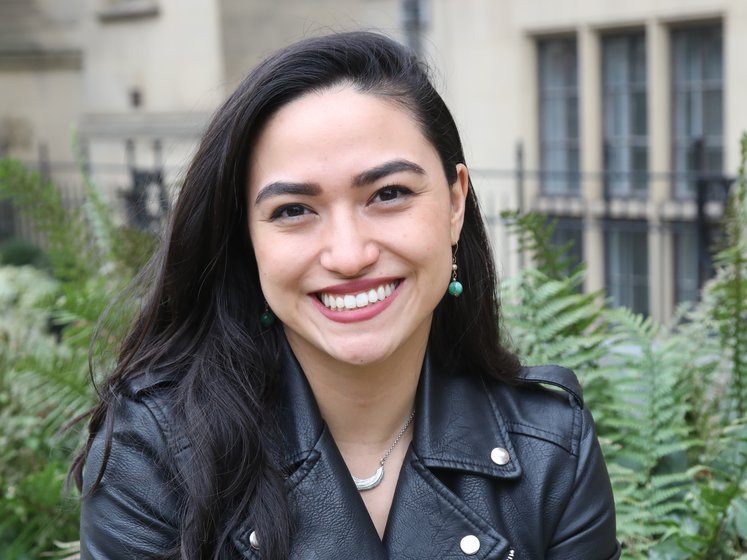 Innah Gaspar, master's student, Department of Media and Communications
Innah Gaspar, master's student, Department of Media and Communications
Why are you passionate about helping to build an LSE for everyone – a more equitable, diverse and inclusive community?
LSE holds some of the brightest minds in the world who will go on to become influencers and leaders in their countries and fields, so it’s fundamental to start cultivating a global, equitable and inclusionary community here and now. At LSE, we have a huge opportunity to break down biases, establish safe spaces and generate fair practices that can have a ripple effect. But it starts with us.
What are some simple steps people can take in their day-to-day interactions to help build an inclusive LSE community?
The simple act to stop and listen. Life moves so fast at LSE with the demands of academic work and the future, with new friends and new teachers; but it’s important to take a moment to look up from your computer. Who seems frustrated, distressed or lonely – and for a moment – might need someone to just listen? Sometimes we also have to stop, listen to ourselves and have the courage to ask for help. Building an inclusive LSE community means bravely supporting one another, having an open dialogue, listening and learning about differences rather than assuming.
These workshops are part of EDI’s ‘Making a Choice’ resources to promote respect and support those who are affected by issues of harassment, consent and hate crime. What does ‘Making a Choice’ mean to you in this context?
'Making a Choice' not only means being an active advocate in situations of harassment but also means being aware of how our own actions, behaviours or attitudes can contribute to or contest issues of harassment, consent and hate crime. 'Making a Choice' to treat everyone with dignity and respect is at a personal, individual level, but also extends to the wider LSE student body. 'Making a Choice' is different depending on the situation but I think always start with asking, "Are you ok?"
How does the training you’re facilitating empower attendees to confidently deal with issues such as hate crime and sexual consent?
In the reality of #MeToo and sexual violence being an issue on university campuses everywhere, training and education from our consent workshops are fundamental for the well-being of all students. Although sexual consent is basic, there are many myths that surround it. Our workshops facilitate open conversation to unpack scenarios, equip with training and tools, and ultimately attempt to prevent these crimes from happening. By engaging in dialogue on issues on harassment, consent and hate crime, as well as giving staff and students the tools to safely and respectfully intervene, I believe the workshop participants are empowered to make a choice.